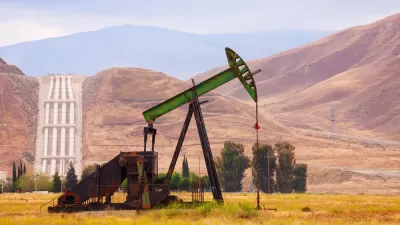Loveland became the first city in Colorado to reject a voter-imposed moratorium on gas and oil hydraulic fracturing. Voters in five cities have approved moratoriums since 2012 though they are being contested by energy companies and the state.
Residents of Loveland, a city of 67,000 soundly defeated "Question 1, the only item on the city’s special election ballot which proposed a two-year moratorium on fracking and a study of the process’ potential health impacts," writes Ryan Maye Handy, Environment and Public Lands Reporter for The Fort Collins Coloradoan.
It lost by 900 votes, or 4.5% of the 20,000 ballots cast on June 24. Coincidentally, that's the same amount of total votes cast in Broomfield last year. That measure passed by a mere 20 votes, or .1%.
Colorado has a recent history of voter-approved opposition to fracking, beginning with Longmont in 2012; and in 2013 by Fort Collins, Lafayette, Boulder, and Broomfield, all Front Range cities.
One might ask why some of these ballot measures are held in the first place considering that "(i)t’s been years since any new wells were fracked in Loveland and there appear to be no new wells in the works," said Loveland Public Information Officer Tom Hacker.
Of interest to those who follow voter registration issues, one can register to vote the same day as the election in Colorado. Handy writes, "Loveland residents were casting votes and even registering until the eleventh hour on Tuesday. At one point would-be voters were sprawled on the office floor, registering to vote."
Abbreviated version of this article appears in Governing.
FULL STORY: Loveland voters strike down fracking moratorium

Maui's Vacation Rental Debate Turns Ugly
Verbal attacks, misinformation campaigns and fistfights plague a high-stakes debate to convert thousands of vacation rentals into long-term housing.

Planetizen Federal Action Tracker
A weekly monitor of how Trump’s orders and actions are impacting planners and planning in America.

Chicago’s Ghost Rails
Just beneath the surface of the modern city lie the remnants of its expansive early 20th-century streetcar system.

Bend, Oregon Zoning Reforms Prioritize Small-Scale Housing
The city altered its zoning code to allow multi-family housing and eliminated parking mandates citywide.

Amtrak Cutting Jobs, Funding to High-Speed Rail
The agency plans to cut 10 percent of its workforce and has confirmed it will not fund new high-speed rail projects.

LA Denies Basic Services to Unhoused Residents
The city has repeatedly failed to respond to requests for trash pickup at encampment sites, and eliminated a program that provided mobile showers and toilets.
Urban Design for Planners 1: Software Tools
This six-course series explores essential urban design concepts using open source software and equips planners with the tools they need to participate fully in the urban design process.
Planning for Universal Design
Learn the tools for implementing Universal Design in planning regulations.
planning NEXT
Appalachian Highlands Housing Partners
Mpact (founded as Rail~Volution)
City of Camden Redevelopment Agency
City of Astoria
City of Portland
City of Laramie




























